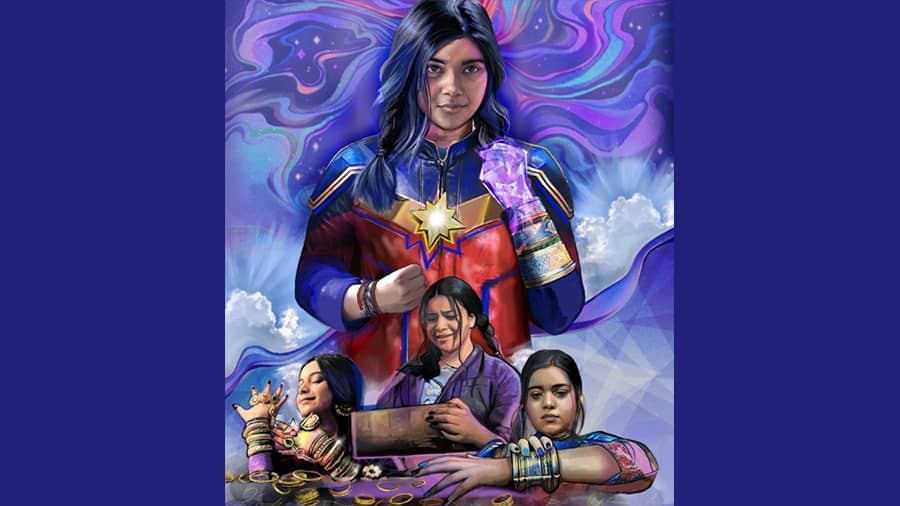Her name is Khan. And she is a superhero. The new Disney series, Ms. Marvel, features the first Muslim lead character in the Marvel Cinematic Universe, marking a major break in Hollywood’s depiction of a community long confined to stereotypical roles as victims, criminals or terrorists. Here, the 16-year-old Kamala Khan, played by the Pakistani-Canadian actress, Iman Vellani, realises that a bangle that is a family heirloom carries superpowers that allow her to save the world. The series captures nuances of what it is like to be a young woman — brown and Muslim — in a multicultural society, where blending in can mean turning away from one’s cultural roots. Ms Vellani is expected to reprise her role in The Marvels next year alongside Brie Larson (who is white) as Captain Marvel and Teyonah Parris (who is black) as Monica Rambeau. Given Hollywood’s history of the white-saviour complex, this shift is welcome. It represents the latest gain in the industry’s long struggle for greater diversity, underscored in 2015 by the #OscarsSoWhite campaign after the Academy of Motion Picture Arts and Sciences awarded all 20 acting nominations to white performers. If Black Panther introduced the world to a black superhero, Hidden Figures highlighted the true story of black women who played a central role in America’s space programme.
This trend is not limited to Hollywood, and it extends across sectors. In India, Muslim actors of an earlier era had to work under Hindu pseudonyms. Even when that changed, leading stars — while Muslim — almost always played characters with Hindu names. Muslim characters were mostly either sidekicks or villains. In recent years, a wave of films has broken that pattern, offering heroes who are identifiably Muslim. From Chak De! India and Raazi to Pari and Secret Superstar, many of these same films also have women in central roles, shattering dual glass ceilings. In the world of sports, the British Olympic champion diver, Tom Daley, and the Indian sprint queen, Dutee Chand, have come out as gay. Two of the biggest stars of women’s football, Marta of Brazil and Megan Rapinoe of the United States of America, are openly gay. But it is also important to not mistake more diverse representation in popular culture and in sports for a fundamental crack in the power structures that govern industries and societies: they remain resistant to any challenge. Eddy Grant’s upbeat-sounding “Gimme Hope Jo’anna” is today often heard at poolside parties, even though it is actually a searing anti-apartheid anthem and racial discrimination remains real around the world. Bollywood is still waiting for a Dalit character as a hero, although Marathi and Tamil films are better at addressing caste. Bollywood films with positive Muslim characters have not reduced the hate that the community endures daily in India. Popular culture can help catalyse broader change. But only real policies — not a superhero — that take on social bias and inequity can make the world fairer.

